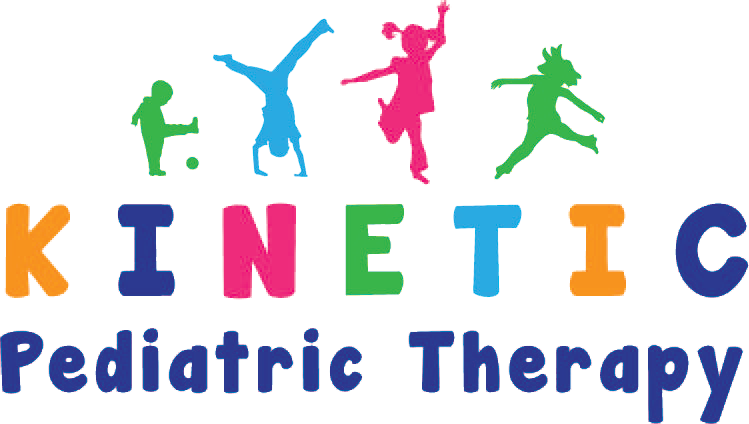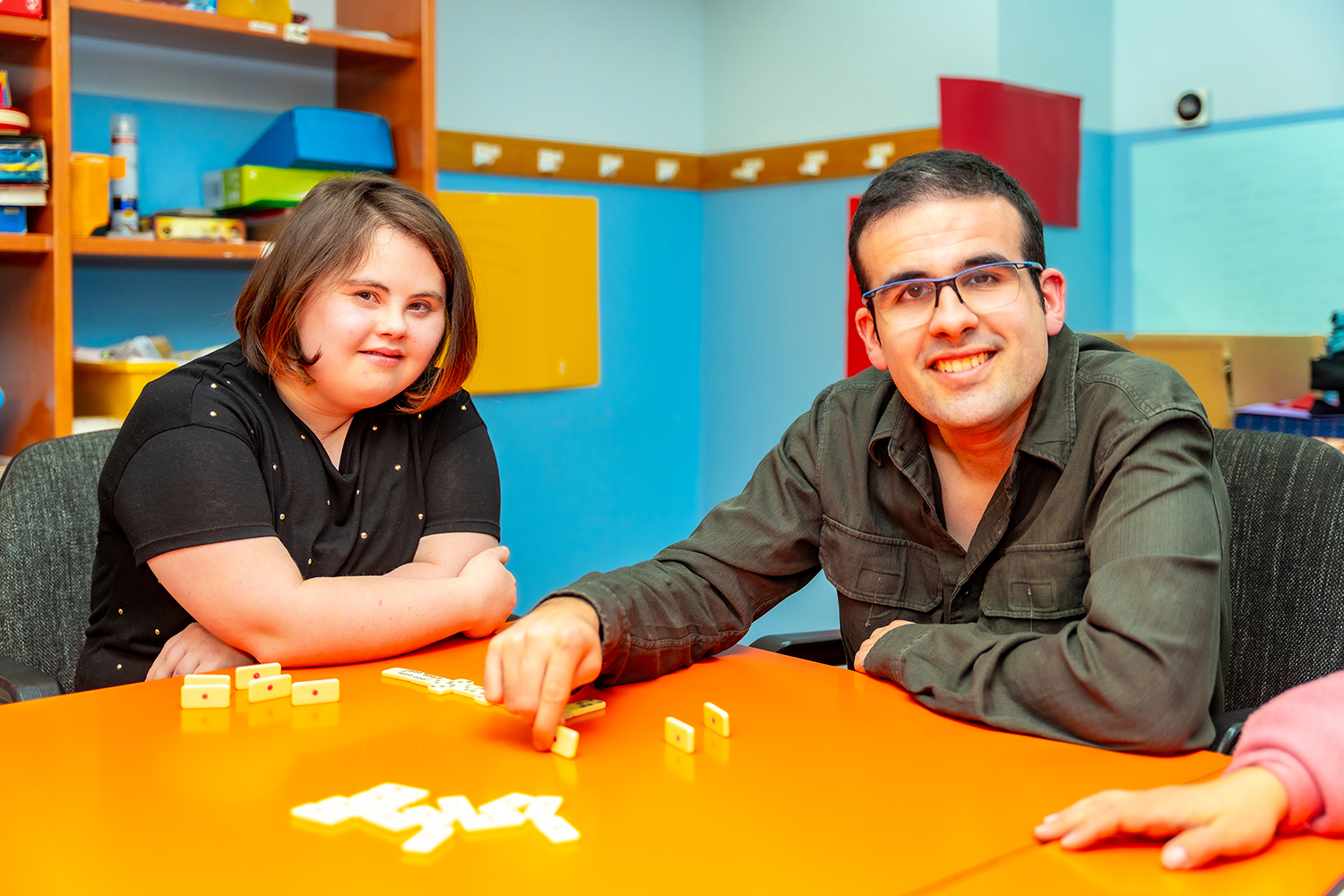
Landing Your Dream Job as a School Therapist
A Complete Guide
Becoming a school therapist offers the opportunity to make a profound impact on children’s lives while working in a dynamic and rewarding educational environment. Whether you’re pursuing a career in physical therapy, occupational therapy, speech-language pathology, or behavioral therapy, working within a school setting allows you to help children overcome challenges, develop essential skills, and thrive academically and socially.
Landing your dream job as a school therapist may seem challenging, but with the right strategies, preparation, and mindset, you can secure the role you’ve always envisioned. At Kinetic Pediatric Contract Therapy, we work closely with numerous school systems throughout North Carolina, and we understand what it takes to succeed in this fulfilling career. In this guide, we’ll walk you through the steps to landing your dream job as a school therapist.
Steps to take to Land Your Dream Job as a School Therapist
Step 1: Gain the Right Qualifications and Certifications
The first and most important step to becoming a school therapist is acquiring the necessary qualifications. Depending on your area of specialty—whether it’s physical therapy, occupational therapy, speech-language therapy, or behavioral therapy—you’ll need to meet specific educational requirements and obtain professional certifications.
- Physical Therapists (PTs): Typically require a Doctor of Physical Therapy (DPT) degree, along with state licensure. If you plan to work in schools, you may also need a school-based certification in addition to your state license.
- Occupational Therapists (OTs): Must earn a Master’s or Doctoral degree in occupational therapy and obtain a state license. Like PTs, school-based certification may be necessary depending on your location.
- Speech-Language Pathologists (SLPs): Need a Master’s degree in speech-language pathology, state licensure, and certification from the American Speech-Language-Hearing Association (ASHA).
- Behavioral Therapists: Depending on your specialty, you may need a Master’s degree in psychology, counseling, or behavior analysis, along with relevant certifications such as a Board Certified Behavior Analyst (BCBA) credential.
In addition to meeting educational and licensing requirements, many school systems require therapists to have experience working with children or in an educational setting. Internships, fieldwork, or volunteer opportunities can provide valuable hands-on experience and make you a more competitive candidate.
Step 2: Build Relevant Experience
Experience is a key factor in landing your dream job as a school therapist. While academic qualifications are important, practical experience working with children and in school settings is highly valued by employers. Consider pursuing the following opportunities to gain experience:
- School-Based Internships: Many therapy programs offer school-based internships where you can work directly with students under the supervision of experienced professionals. This experience not only builds your skills but also gives you insight into the unique needs of students in school environments.
- Volunteer Work: Volunteering with children in schools, summer camps, or after-school programs can give you hands-on experience while demonstrating your commitment to helping young learners succeed.
- Clinical Experience: For those in fields like occupational or physical therapy, gaining experience in pediatric settings such as clinics, hospitals, or outpatient facilities can be invaluable. Many school therapists also begin their careers working in clinical roles before transitioning to schools.
- Shadowing Professionals: Shadowing experienced school therapists can provide valuable insight into the day-to-day responsibilities and challenges of the role. It’s also an excellent way to network and seek mentorship.
By building a strong foundation of experience, you will not only enhance your resume but also develop the skills needed to support students with diverse needs.
Step 3: Tailor Your Resume and Cover Letter
Your resume and cover letter are your first opportunities to make a strong impression on potential employers. To stand out as a candidate for a school therapist position, make sure your resume highlights relevant skills, experience, and achievements that align with the needs of the school.
- Customize Your Resume: Tailor your resume for each job application, emphasizing your experience working with children, your knowledge of school-based interventions, and any specialized certifications. Highlight relevant accomplishments, such as successful therapy programs, progress made by students, or collaboration with multidisciplinary teams.
- Focus on Key Skills: School therapists require a unique set of skills, including communication, collaboration, patience, and the ability to adapt to the individual needs of each student. Be sure to highlight these soft skills in addition to your technical expertise.
- Craft a Strong Cover Letter: Your cover letter should demonstrate your passion for working with children and your understanding of the school’s mission. Include specific examples of how your experience and skills make you the perfect fit for the role.
Step 4: Network Within the Education and Therapy Communities
Networking can play a significant role in landing your dream job as a school therapist. Building relationships with other professionals in the education and therapy communities can lead to job referrals, mentorship opportunities, and valuable insights into the job market.
- Join Professional Associations: Becoming a member of professional organizations such as the American Occupational Therapy Association (AOTA), the American Physical Therapy Association (APTA), or ASHA can provide access to networking events, job boards, and continuing education opportunities.
- Attend Conferences and Workshops: Participating in conferences, workshops, and seminars allows you to stay up-to-date on the latest therapy techniques and trends in education while connecting with other professionals in your field.
- Connect with School Districts: Reach out to school districts where you’d like to work and inquire about potential job openings, internships, or volunteer opportunities. Building a relationship with school administrators and HR departments can give you an advantage when positions become available.
- Leverage Social Media: Use professional networking platforms like LinkedIn to connect with other therapists, school administrators, and educators. Engage with relevant content and participate in discussions to increase your visibility within the field.
Step 5: Prepare for Interviews
Once you’ve secured an interview, it’s time to showcase your knowledge, passion, and experience. School therapy interviews often focus on your ability to work with children, collaborate with educational teams, and handle the unique challenges of a school setting.
- Research the School: Before your interview, research the school’s mission, values, and student population. This will help you tailor your responses and show that you’re a good fit for their specific needs.
- Be Ready to Discuss Case Studies: Be prepared to discuss specific examples of how you’ve helped students overcome challenges, meet their goals, or progress through therapy. Use these examples to highlight your problem-solving skills and ability to work with children who have diverse needs.
- Highlight Collaboration Skills: School therapists often work closely with teachers, parents, and other professionals. Be ready to discuss your experience collaborating with multidisciplinary teams and how you communicate effectively with educators and families.
- Show Your Passion for Helping Children: Your passion for helping students achieve their full potential should shine through in your responses. Schools want to hire therapists who are not only skilled but also deeply committed to making a positive impact on children’s lives.
Step 6: Stay Committed to Continuing Education
The field of pediatric therapy is constantly evolving, with new techniques, research, and best practices emerging regularly. To stay competitive and continue growing in your role as a school therapist, it’s important to stay committed to lifelong learning.
- Pursue Continuing Education: Stay up-to-date on the latest developments in your field by pursuing continuing education courses, certifications, and workshops. Many states require ongoing education for licensure, and keeping your skills sharp will benefit both you and your students.
- Stay Informed on Educational Trends: Understanding current trends in education, such as inclusive classrooms, social-emotional learning, and trauma-informed practices, can help you better support students and collaborate with educators.
- Seek Mentorship: Find experienced professionals in your field who can provide guidance, share their insights, and help you navigate your career as a school therapist.
Landing your dream job as a school therapist is a rewarding journey that requires the right combination of qualifications, experience, and passion for helping students succeed. At Kinetic Pediatric Contract Therapy, we’re dedicated to empowering school therapists by providing top-notch opportunities in educational settings throughout North Carolina. By following the steps outlined in this guide, you can position yourself as a strong candidate and take the first steps toward making a meaningful impact in the lives of children.
With dedication, perseverance, and a focus on continuous growth, you can achieve your dream of working as a school therapist and help students reach their full potential.
Please Share
Kinetic Physical Therapy Careers - Full Time Benefits
- Mentoring for New Professionals (SLP Clinical Fellowship Mentorship Information)
- 10 Paid Holidays, Sick Time, 10 Vacation Days
- Safe Harbor Retirement 401k and/or Roth IRA with company matching and immediate vesting
- AD&D Insurance
- Medical (begins on 1st day of month after 30 days service), Dental & Vision Plans
- Life Insurance
- Disability Insurance
- Malpractice Insurance
- Licensure Assistance
- Mileage Reimbursement
- Continuing Education including online CEU options
- Clinical Tests and Therapy Materials provided
- Electronic Medical Records
- Graduate School Financial Assistance
- Laptop / Chromebook Free!
- AFLAC available
- Direct Deposit / Financial Services Package
- Excellent Administrative Support
- Exceptional Career Growth Opportunities
- 12 Month Pay Plan Available for School Therapists
Kinetic Physical Therapy Careers - Full Time Benefits
- Mentoring for New Professionals (SLP Clinical Fellowship Mentorship Information)
- 10 Paid Holidays, Sick Time, 10 Vacation Days
- Safe Harbor Retirement 401k and/or Roth IRA with company matching and immediate vesting
- AD&D Insurance
- Medical (begins on 1st day of month after 30 days service), Dental & Vision Plans
- Life Insurance
- Disability Insurance
- Malpractice Insurance
- Licensure Assistance
- Mileage Reimbursement
- Continuing Education including online CEU options
- Clinical Tests and Therapy Materials provided
- Electronic Medical Records
- Graduate School Financial Assistance
- Pre-Paid Legal / Legal Shield available
- AFLAC available
- Direct Deposit / Financial Services Package
- Excellent Administrative Support
- Exceptional Career Growth Opportunities
- 12 Month Pay Plan Available for School Therapists
Ready to Take the Next Step in Your Career?
If you’re an educational professional looking to take your career to the next level, explore all the Kinetic Pediatric Therapy career opportunities.
We’re looking for candidates who are ready to bring their expertise to our team and strive to provide the very best service to our clients.
We are 100% therapist owned and operated. We offer a family friendly environment that offers not only a challenging and rewarding career but a fun team of colleagues and mentors. School based therapy staff even have an option to choose a 10 or 12 month pay option. All applicants have the opportunity to interview our therapists to learn more about a career with Kinetic. You will find our Glassdoor and Indeed ratings and reviews to be among the best.




